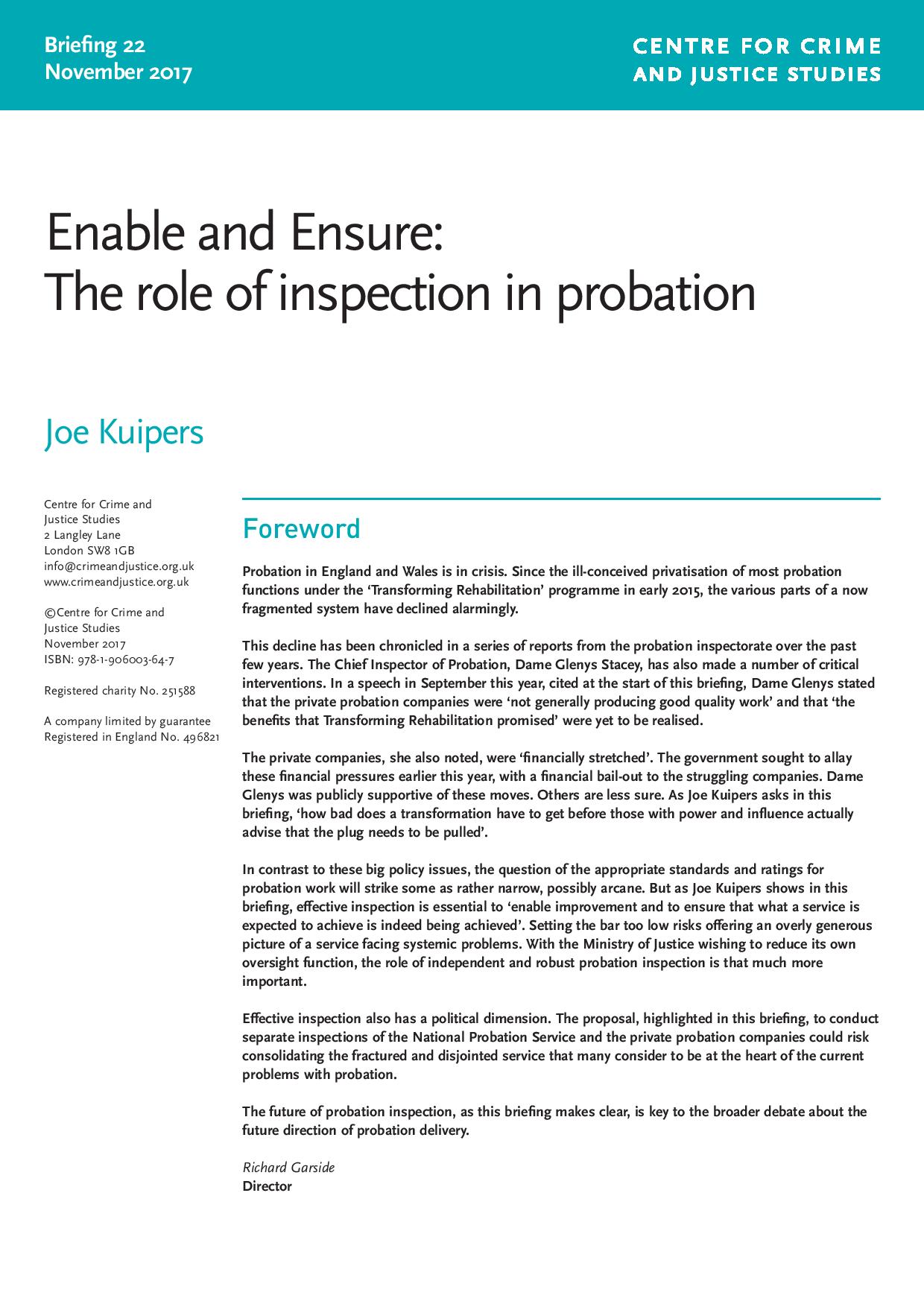Probation in England and Wales is in crisis.
Since the ill-conceived privatisation of most probation functions under the ‘Transforming Rehabilitation’ programme in early 2015, the various parts of a now fragmented system have declined alarmingly.
This decline has been chronicled in a series of reports from the probation inspectorate over the past few years. The Chief Inspector of Probation, Dame Glenys Stacey, has also made a number of critical interventions. In a speech in September this year, cited at the start of this briefing, Dame Glenys stated that the private probation companies were ‘not generally producing good quality work’ and that ‘the benefits that Transforming Rehabilitation promised’ were yet to be realised.
The private companies, she also noted, were ‘financially stretched’. The government sought to allay these financial pressures earlier this year, with a financial bail-out to the struggling companies. Dame Glenys was publicly supportive of these moves. Others are less sure. As Joe Kuipers asks in this briefing, ‘how bad does a transformation have to get before those with power and influence actually advise that the plug needs to be pulled’.
In contrast to these big policy issues, the question of the appropriate standards and ratings for probation work will strike some as rather narrow, possibly arcane. But as Joe Kuipers shows in this
briefing, effective inspection is essential to ‘enable improvement and to ensure that what a service is expected to achieve is indeed being achieved’. Setting the bar too low risks offering an overly generous picture of a service facing systemic problems. With the Ministry of Justice wishing to reduce its own oversight function, the role of independent and robust probation inspection is that much more important.
Effective inspection also has a political dimension. The proposal, highlighted in this briefing, to conduct separate inspections of the National Probation Service and the private probation companies could risk consolidating the fractured and disjointed service that many consider to be at the heart of the current problems with probation.
The future of probation inspection, as this briefing makes clear, is key to the broader debate about the future direction of probation delivery.
